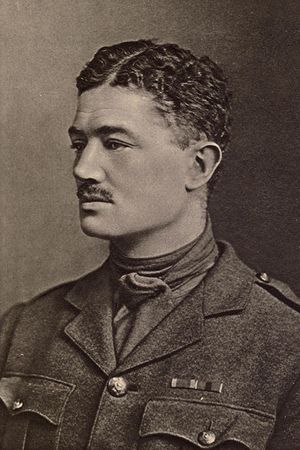Difference between revisions of "Julian Grenfell"
m (Text replacement - "|twitter= " to "") |
m (tidy) |
||
| (2 intermediate revisions by 2 users not shown) | |||
| Line 2: | Line 2: | ||
|wikipedia=https://en.wikipedia.org/wiki/Julian_Grenfell | |wikipedia=https://en.wikipedia.org/wiki/Julian_Grenfell | ||
|amazon= | |amazon= | ||
| − | |image= | + | |image=Julian Grenfell.jpg |
| − | |nationality= | + | |nationality=UK |
| + | |parents=William Grenfell,Ethel Grenfell | ||
|birth_date=30 March 1888 | |birth_date=30 March 1888 | ||
|birth_place=Westminster, London, England | |birth_place=Westminster, London, England | ||
| − | |death_date= | + | |death_date=26 May 1915 |
|death_place=Boulogne, Pas-de-Calais, France | |death_place=Boulogne, Pas-de-Calais, France | ||
| + | |alma_mater=Eton College,Balliol College (Oxford) | ||
|constitutes=poet | |constitutes=poet | ||
| − | |relatives= | + | |relatives=Francis Octavius Grenfell |
| − | | | + | |description=War poet killed by a shell in [[World War I]]. |
}} | }} | ||
| − | '''Julian Grenfell''' was a contemporary of [[Desmond Morton]] at [[Eton]]. | + | '''Julian Grenfell''' was a contemporary of [[Desmond Morton]] at [[Eton]]. He was a war poet killed by a shell in [[World War I]]. |
| + | |||
| + | ==Background== | ||
| + | Julian Grenfell was born at 4 St James's Square, [[London]], the eldest son of [[William Grenfell]], later Baron Desborough, and [[Ethel Priscilla Fane]], daughter of [[Julian Fane]]. He studied at [[Eton College]] and [[Balliol College (Oxford)|Balliol College at the University of Oxford]]. | ||
| + | |||
| + | ==The Great War== | ||
| + | He enlisted in [[1907]] and subsequently fought during the [[First World War]]. In January [[1915]] he was decorated with the Distinguished Service Order and as captain of 1st Royal Dragoons Grenfell was wounded in action following a shell explosion. Admitted to the field hospital, Grenfell passed away thirteen days later with his parents at his bedside. His younger brother Gerald William "Billy" Grenfell was also killed in action and died in action on July 30 of the same year about a kilometer from where Julian was injured. | ||
| + | |||
| + | While at the front, Grenfell began writing war poems and his most famous poem, "Into Battle," was first published by ''[[the Times]]'' the day after his death. The poem was very popular at the time and reached a level of popularity similar to that of [[Rupert Brooke]]'s "The Soldier". Like Brooke, Grenfell was pro-war and his poetry was of a fervently [[patriotic]] nature, unlike the more disillusioned and [[pacifist]] compositions of [[Siegfried Sassoon]] and [[Wilfred Owen]]. | ||
| + | |||
| + | Along with the other British "war poets", Grenfell is commemorated by a plaque in the poets' corner of [[Westminster Abbey]].<ref>https://net.lib.byu.edu/english/wwi/poets/Preface.html</ref> | ||
{{SMWDocs}} | {{SMWDocs}} | ||
==References== | ==References== | ||
{{reflist}} | {{reflist}} | ||
| − | |||
Latest revision as of 01:25, 22 July 2022
(poet) | |
|---|---|
 | |
| Born | 30 March 1888 Westminster, London, England |
| Died | 26 May 1915 (Age 27) Boulogne, Pas-de-Calais, France |
| Nationality | UK |
| Alma mater | Eton College, Balliol College (Oxford) |
| Parents | • William Grenfell • Ethel Grenfell |
| Relatives | Francis Octavius Grenfell |
War poet killed by a shell in World War I. | |
Julian Grenfell was a contemporary of Desmond Morton at Eton. He was a war poet killed by a shell in World War I.
Background
Julian Grenfell was born at 4 St James's Square, London, the eldest son of William Grenfell, later Baron Desborough, and Ethel Priscilla Fane, daughter of Julian Fane. He studied at Eton College and Balliol College at the University of Oxford.
The Great War
He enlisted in 1907 and subsequently fought during the First World War. In January 1915 he was decorated with the Distinguished Service Order and as captain of 1st Royal Dragoons Grenfell was wounded in action following a shell explosion. Admitted to the field hospital, Grenfell passed away thirteen days later with his parents at his bedside. His younger brother Gerald William "Billy" Grenfell was also killed in action and died in action on July 30 of the same year about a kilometer from where Julian was injured.
While at the front, Grenfell began writing war poems and his most famous poem, "Into Battle," was first published by the Times the day after his death. The poem was very popular at the time and reached a level of popularity similar to that of Rupert Brooke's "The Soldier". Like Brooke, Grenfell was pro-war and his poetry was of a fervently patriotic nature, unlike the more disillusioned and pacifist compositions of Siegfried Sassoon and Wilfred Owen.
Along with the other British "war poets", Grenfell is commemorated by a plaque in the poets' corner of Westminster Abbey.[1]